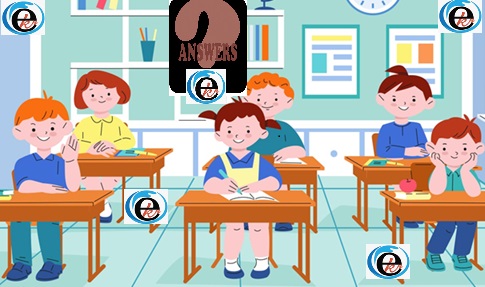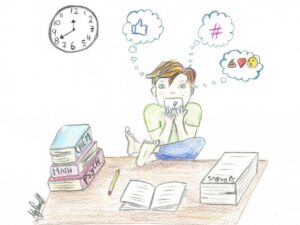How to Minimize Classroom Interruptions.

How to Minimize Classroom Interruptions.
Interruptions are the bane of every classroom teacher.
Not only is precious class time lost but so is something even more essential: momentum.
A class that is 100% on task suddenly becomes 100% off task as the interruption disrupts everyone’s attention.
The teacher must then refocus everyone’s attention back onto the topic at hand.
-
Also read: How Much Natural Fat Do I Need, Anyway?
While many interruptions are beyond teachers’ direct control (for example, fire engines, P.A. announcements, or drop-in visitors), some interruptions are created by the teachers (stopping a lesson to hunt for materials or to reprimand a student).
Here are some tips for minimizing the impact of interruptions;
At the beginning of the year, when it is best to establish classroom routines, tell your students what they should do during such interruptions.
#01
To assess the amount of time that interruptions consume, carry a stopwatch for a day or week.
Each time you are interrupted, start the watch.
When the interruption ends, stop the watch.
At the end of the day, record how much time has elapsed.
An alternative is to ask a student to do the timekeeping for you.
#02
Let the world know that intrusions are not welcome.
Many interruptions occur simply because the offender is not aware that his or her behavior is disruptive.
Open doors invite interruptions.
Outside their doors, many teachers hang a sign such as “Important Learning in Progress” (or use the “Please Do Not Disturb: Learning in Progress”).
Tape a notepad and hang a pencil beside the door for messages.
#03
Negotiate with the principal for custodians to schedule distracting work, such as mowing beside windows, before or after school.
It may not always be possible, but let it be known that such activity detracts from learning.
If doors or windows provide too many visual distractions to students, rearrange the furniture to face away from the distractions.
#04
Let other teachers know that sending students to borrow supplies during class is not welcome.
Be tactful but assertive.
Conversely, you have a responsibility to respect your fellow teachers’ time.
Do not send student messengers to their rooms during classes except in emergencies.
#05
The best way to prevent interruptions is to conduct a well-planned, organized lesson.
Have the necessary materials and equipment ready before class begins.
Stopping a lesson to thread a movie projector or hunt for a book is usually an avoidable distraction.
Not only does it use precious class time, but also it invites student misbehavior.
#06
When an interruption does occur, you aim to keep it as brief as possible, minimize the impact on the learning activity, and ensure that the same interruption will not occur again.
If you are interrupted by a telephone call, get to the point immediately.
Be brief and assertive.
If the call is going to take too long, give the caller a more convenient time to talk or volunteer to call back.
#07
Most principals have discovered the potential abuses of the P.A., restricting announcements to the first and last five minutes of the day.
If your school has not implemented such a policy, suggest that it do so.
Some have stopped using the P.A. system for routine morning announcements; instead, teachers read them to their classes.
#08
People who walk in unannounced cause many classroom interruptions.
If someone comes to your door, stand in the doorway so that you can talk with the visitor yet face the class.
Try to avoid leaving the room unattended.
As much as possible, discourage drop-in visitors.
Join Enlighten Knowledge WhatsApp platform.
Join Enlighten Knowledge Telegram platform.






Thank you for sharing superb informations. Your web-site is very cool. I’m impressed by the details that you’ve on this website. It reveals how nicely you perceive this subject. Bookmarked this website page, will come back for extra articles. You, my friend, ROCK! I found simply the information I already searched all over the place and just could not come across. What an ideal web site.
A lot of of whatever you say is astonishingly accurate and that makes me wonder the reason why I hadn’t looked at this in this light previously. This particular piece truly did switch the light on for me as far as this particular subject matter goes. Nonetheless at this time there is one factor I am not really too comfortable with so whilst I make an effort to reconcile that with the main idea of your issue, permit me see just what all the rest of the visitors have to say.Well done.